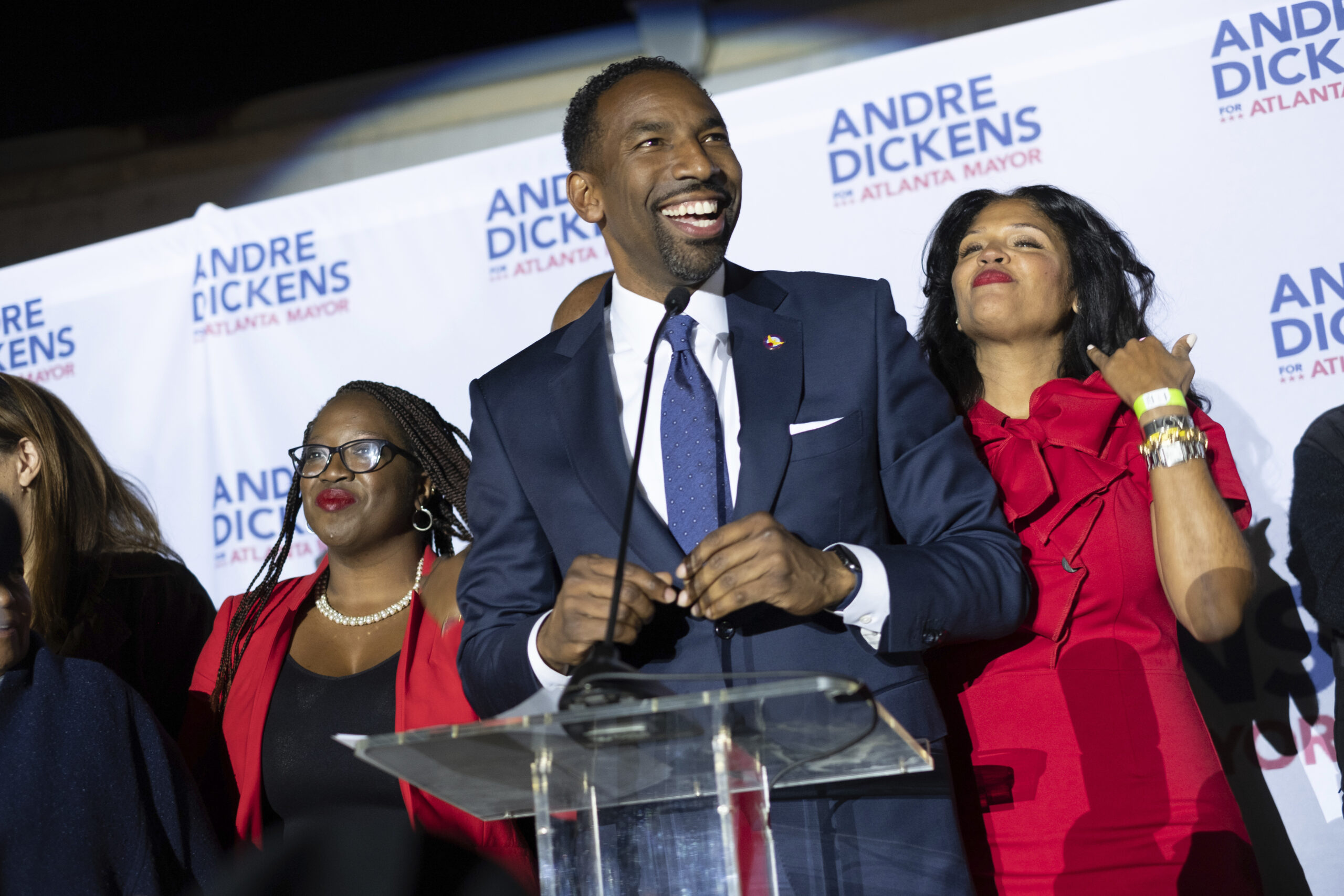Although Atlanta City Councilmember Andre Dickens won’t officially be sworn in as mayor until 2022, advocates are optimistic about his term, saying that he could turn Atlanta’s housing challenges into opportunities.
Dickens isn’t a rabble-rouser, according to Georgia State University professor Dan Immergluck. He’s a conciliator.
“He’s somebody who listens, I think, to everyone,” Immergluck said. “And that includes ranging from the Housing Justice League to developers.”
Dickens, 47, will now step into one of the most high-profile political positions in the South after beating City Council President Felicia Moore by nearly 30 points in the Nov. 30 runoff election.
The Atlanta native, who serves as a deacon at New Horizon Baptist Church, gave a victory speech Tuesday, where he told his new constituents that Atlanta, despite its growing population, is a city that still faces generational wealth disparities.
“Atlanta is growing in population and in wealth. Businesses are flocking to the city, yet we still have people living on our streets,” Dickens said. “We have people working at our airport just to meet last month’s rent. People are still fighting to stay in their homes in the city that they love.”
Dickens’s conciliatory qualities could help him tackle problems that involve the county and state, like Atlanta’s property tax system, which currently under-tax commercial properties at a time when Atlanta needs money for affordable housing, according to Immergluck.
WABE spoke with Dickens ahead of the Nov. 30 runoff election where he called for the city to protect residents through community benefits agreements with developers, stating that he planned to build mixed-income housing in Atlanta on city-owned land.
“As mayor, I will build or preserve 20,000 units of affordable housing over the next eight years. We have 800 acres of land that the City of Atlanta owns that we can turn into affordable housing units,” Dickens said. “We currently have land that we can build upon where people with different levels of income can all live in the same community and their kids can go to the same schools and they can buy their food at the same local grocery stores.”
However, Immergluck and Odetta Macleish-White, who directs Georgia initiatives for the Center for Community Progress, a nonprofit that focuses on revitalizing neighborhoods, both agree that Dickens will need to address funding before affordability can take place.
“There are still subsidy gaps to fill in, there are perception gaps to fill,” Macleish-White said.
She said some city residents also have a negative view of policies meant to spur affordable housing.
For example, the city recently recommended changing the zoning code to increase density in residential neighborhoods. The proposals would have eliminated parking requirements and made it easier to build second units on certain lots.
But the ideas led to a public outcry because of concerns about their effect on neighborhood character, property values and traffic. Ultimately, the Atlanta City Council did not advance the changes.
The next mayor needs to show how more housing options can actually help with other issues, like traffic, Macleish-White said.
“I think if he could throw the power of his position and title behind closing those gaps, that would be an amazing legacy for him in what you know, could be his first term,” Macleish-White said.
Dickens will begin that term on Jan. 3, 2022.
*An earlier version of this story mislabeled the New Horizon Baptist Church.









